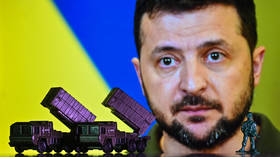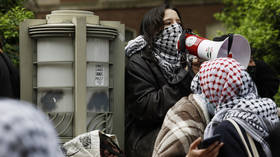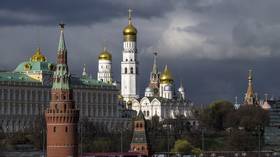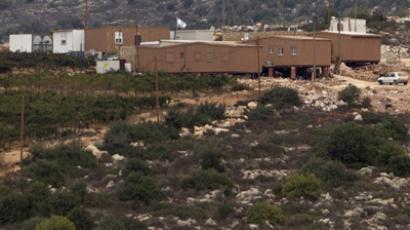Israel steps closer to 1,500 new settlements in East Jerusalem
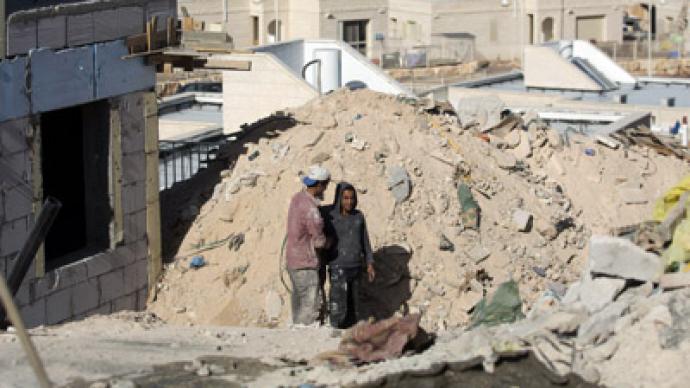
Israel’s Interior Ministry committee has approved the construction of 1,500 houses on disputed territories in Jerusalem, amid UN condemnation. The approval follows the Palestinians UN status being upgraded.
The plan to expand settlements in Ramat Shlomo was first filed in 2010 and initially stipulated the construction of 1,700 houses. However, back then Israeli authorities were forced to suspend their intentions after Joe Biden’s visit to Tel Aviv as the plan met vast condemnation. The recent announcement comes just weeks after Israel, frustrated by the Palestinians success in winning UN recognition at the end of November, authorized the building of 3,000 new settlements in Jerusalem and the West Bank. In response to that a number of European countries summoned their Israeli ambassadors to convey their disapproval and concerns. Interior Minister Eli Yishai, expressed satisfaction with the plan, which is still yet has to be fully discussed."The approval of this program is an important and positive step for the Interior Ministry, in order to improve the housing issue while simultaneously strengthening Jerusalem," the Jerusalem Post quoted the minister.The decision was also welcomed by Yossi Deitch, the deputy mayor of Jerusalem, who according to the newspaper Israel Hayom said, that "the construction freeze in the city, which unfortunately lasted for several years, was brought to an end with the approval of the construction of these new houses, which will provide a partial solution to the housing shortage and the demographic balance of the city."Deitch, who is also a member of the District Committee, called on the Prime Minister and members of Knesset- Israel’s legislative body- to continue to promote construction in Jerusalem and the surrounding areas.A spokeswoman of the Interior Ministry committee, Efrat Orbach, said it could be years before final approval and construction, as the project still must go through several additional planning stages.A critic of the project, left-wing activist Danny Seidemann, has slammed the project saying that “Netanyahu is going to an end-game with massive settlement activity that will determine the borders of Jerusalem as he sees it.”“By all empirical standards, never, ever, since 1967 has there been such a frenzy of settlement activity as there has been over the past month, and one is only now beginning to see the full thrust of this,” the Jerusalem post quoted left-wing activist, Seidemann as saying.Israeli media, at the same time, reports that the announcement was made after hearing objections by Palestinian residents of Shoafat, where the expansion might take place. According to Haaretz the sub-committee of the Jerusalem District Planning and Construction Committee, agreed to reduce the number of homes from 1,700 to 1,500, and “ruled that an archaeological site nearby be preserved.”However, Israel’s move to lower the number of houses built in the E1 area should not be viewed as making concessions, campaigner for equality in Jerusalem Betty Herschman told RT.“The modifications to the plan are extremely negligible in light of objections lowering the original number from about 1680 to 1500 and removing a very small part of the Eastern plan because it was almost touching the homes of the Palestinians,” Herschman said. “These modifications are very slight in light of the larger issue of building on expropriate Palestinian land.” Israel’s construction plan is part of an ongoing effort to consolidate control over East Jerusalem and maintain political leverage in the area, Herschman argued.“There are clear political motivations in demonstrating to the Israeli public that these are greater undivided parts of Jerusalem, as Netanyahu sees them,” she said. “There is clearly a lot of political cachet to be gained from making these bold, aggressive announcements.”The committee is to approve another project for hundreds of homes in Givat Hamatos, a Jewish neighborhood in the south of the city, which is also located on the other side of the Green Line.The settlements in East Jerusalem as well as in the West Bank provide the core of the dispute between Israelis and Palestinians, as Tel Aviv expropriated territories from Jordan in 1967. Palestinians claim the West Bank and East Jerusalem are parts of their future state, and object to any settlements there.




